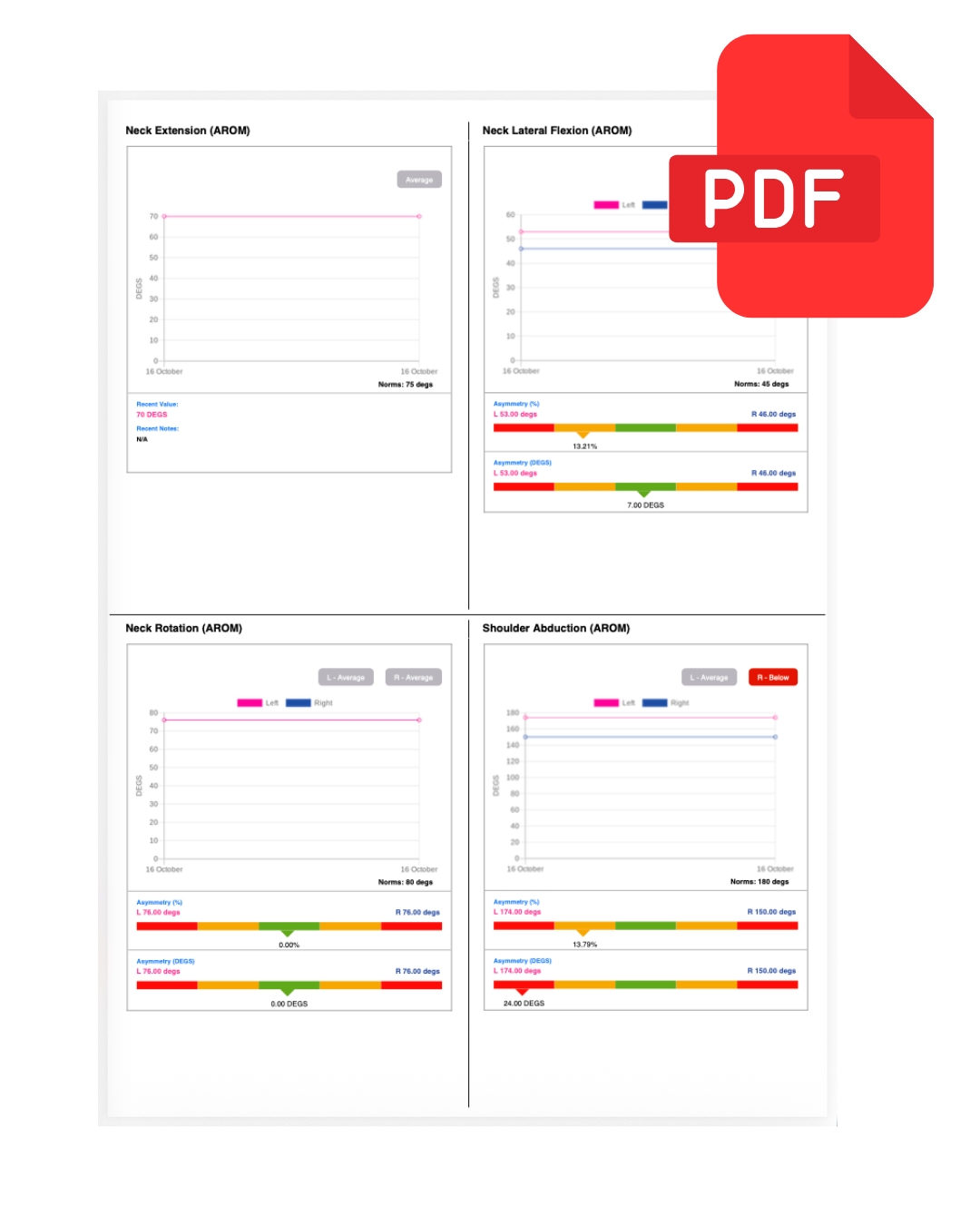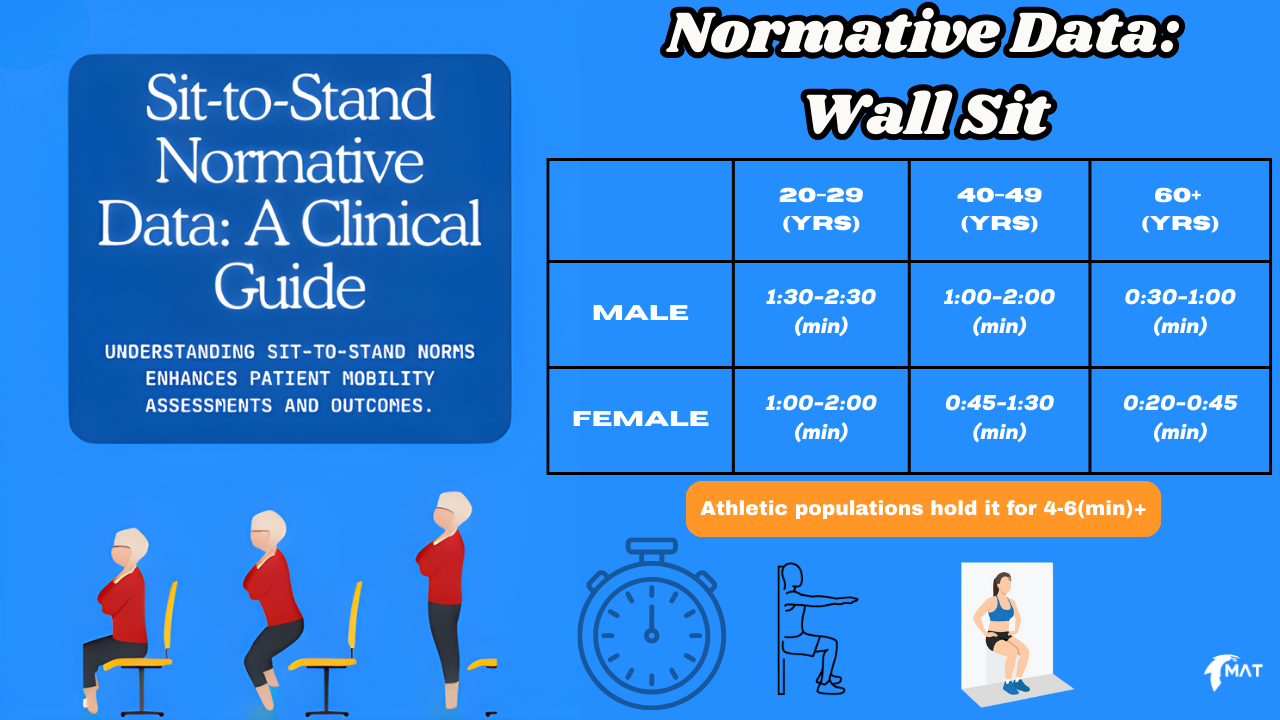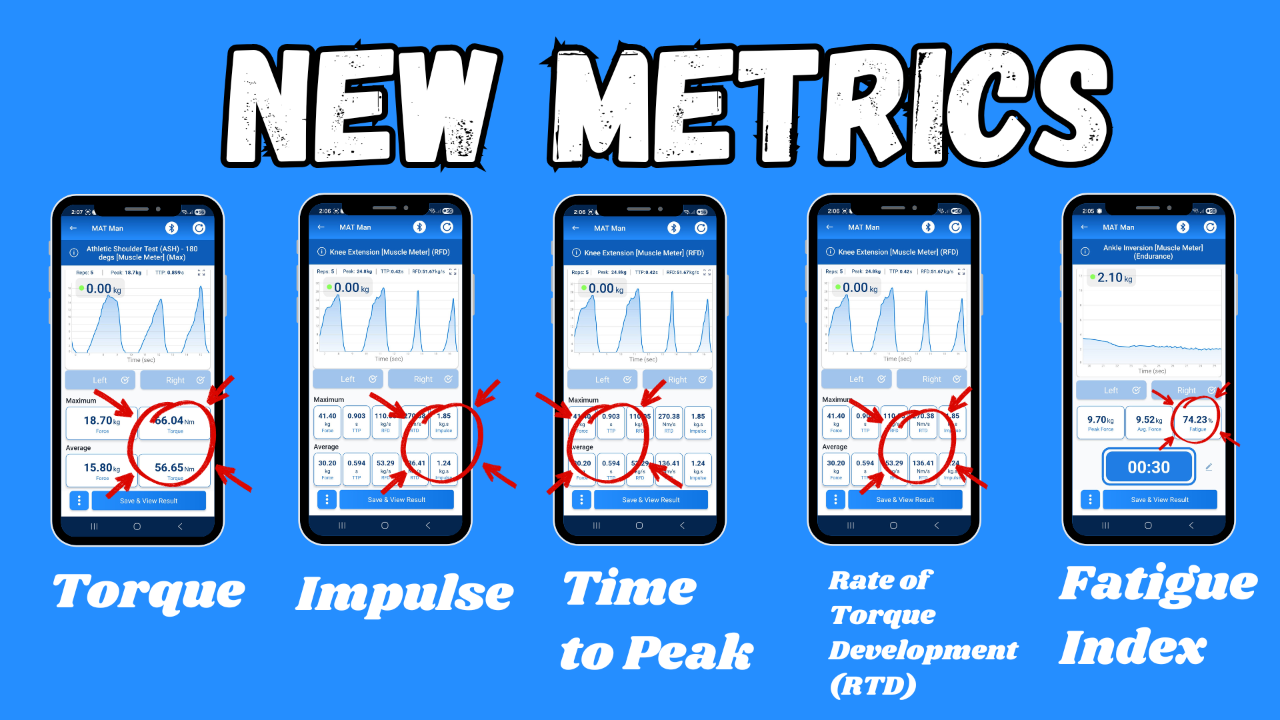Lower-limb function underpins independence, work capacity, and athletic performance. While isolated strength tests provide useful data, they often fail to reflect real-world movement demands.
Two of the most validated, time-efficient, and underused assessments in lower-body evaluation are:
-
The
...
Peak force tells you how much strength exists.
But real-world performance, control, and robustness depend on how quickly force appears, how long it lasts, and how well it is controlled under fatigue.
That’s where advanced force–time metrics — Impulse, Rate of Torque Development (RTD), Torque, Time ...
Pain is subjective — but sensitivity doesn’t have to be.
Pain Pressure Threshold (PPT) testing provides an objective way to quantify how much pressure a client can tolerate before pain is first perceived. Instead of relying solely on descriptive or numerical pain scales, PPT allows professionals to...
Being able to produce force once is only part of the picture.
In the real world — and in performance — what matters is the ability to repeat force consistently over time.
That’s where dynamic endurance becomes essential.
Dynamic Endurance Testing Mode in Measurz allows health and fitness professi...
Strength alone doesn’t tell the full story.
Two individuals can produce the same peak force — yet perform very differently when speed, explosiveness, or rapid load acceptance is required.
That’s where Rate of Force Development (RFD) becomes critical.
Testing Mode in Measurz allows health and fitn...
Strength assessment plays a critical role in health and performance decision-making — yet too often it relies on observation, feel, or vague descriptors like “strong” or “weak”.
The problem?
Subjective assessments are difficult to repeat, hard to defend, and almost impossible to track accurately ove...
🕒 Measurz Testing Mode – Static Endurance
Static endurance tells you how long a client can hold force, how well they can resist fatigue, and how their tissues perform under sustained load.
Measurz makes this measurable — not guesswork.
📈 Live Force Graph
Shows the entire contraction curve in real ...
More Power. More Insight. More Control.
Big things are happening inside your Measurz app — we’ve packed this update with smarter integrations, deeper analytics, and slicker performance to make testing and reporting smoother than ever.
 Condensed PDF Reports & In-App Views
Condensed PDF Reports & In-App Views
Featuring stunning visual...
Ready to take your strength testing next-level?
In this video, we show you exactly how to pair your Muscle Meter with the Measurz App so your data flows faster than your clients’ excuses.
🎥 In this quick walkthrough, you'll learn:
-
How to connect your Muscle Meter to the Measurz App via Bluetoo
...
How to Use the Muscle Meter: Quick Start Guide 🎯
Whether you're testing strength for rehab, performance, or just flexing your data nerd muscles, the Muscle Meter makes objective measurement simple and fast.
🎥 Watch the video above where we walk you through:
-
How to turn the Muscle Meter on/off
...
In this video, we will take you through a step-by-step approach to quickly send reports to your clients.
From Measurz mobile app (download or share via many apps)
From within any session you can click the PDF button in the top right hand corner, then simply hit the share icon on the unified pdf resu...
How to Conduct the Standing Calf Raise Test to Measure Lower Extremity Strength
Assessing a client’s lower extremity strength is essential for evaluating mobility and overall functional health. One reliable tool for this assessment is the Standing Calf Raise Isometric Test, which measures force pro...





